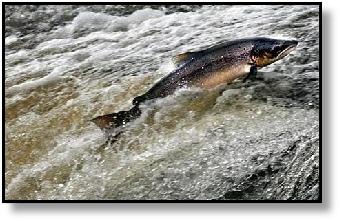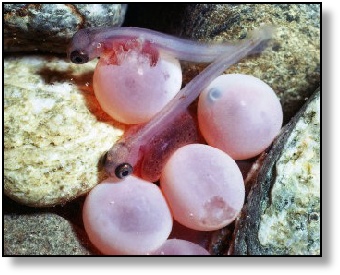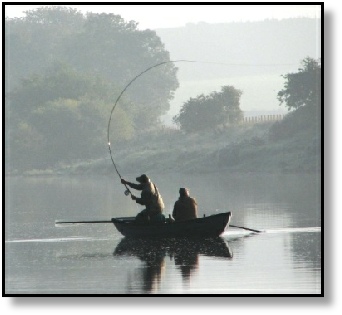EACH PAGE HERE IS AN EXTRACT FROM THE EBOOK.
To Read More
To Read More
Just $18.49
Just $18.49


Fly Fishing Encyclopedia



Fly Fishing Encyclopedia



Fly Fishing Encyclopedia



Fly Fishing Encyclopedia



Fly Fishing Encyclopedia

Salmon will shoal up at the entrance to their home river and wait for the conditions to be right before starting their run upstream and the biggest problem is knowing exactly when that will be. The salmon's timing has to be perfect. Too little water in the river and they will be unable to negotiate the shallower parts of the river. Too much and the force of the water will exhaust them in their attempts to swim against the current. In addition, too much flow will wash their eggs away as they spawn and before they have had time to cover their redd with gravel and stones. The ideal time is just after a rain storm in the higher reaches of the river, which will refresh and fill the river and is known as a spate. As the river slowly empties again the fish will make their run for home. With this flush of water they will move up the river, usually at night. They will rest up during the day in deep pools and behind obstacles like large rocks that give them respite from the current. This is where the fisherman will hunt for them.
There are two quite different classes of salmon - the Pacific variety that spawn once and die and the Atlantic variety that will spawn and return to the sea, perhaps as many as seven times throughout their lives. Quite why there is this fundamental difference between the two varieties is unknown. It may have something to do with the Gulf Stream - otherwise known as the North Atlantic Drift - which keeps the North Atlantic seaboard slightly warmer in winter than it would otherwise be. This keeps the area ice free, facilitating the return to the ocean of salmon which have spawned. On the other hand the north Pacific and its rivers may freeze over for a large part of winter. This creates a much harsher environment for large shoals of fish to survive in and the frozen rivers effectively preclude any substantial food source production. It is ecologically more efficient for this harsh time to be spent as an egg rather than as a fish trying to find a meal, so there are no salmon near the North American rivers after the spawning season - they all die.
SALMON FISHING


